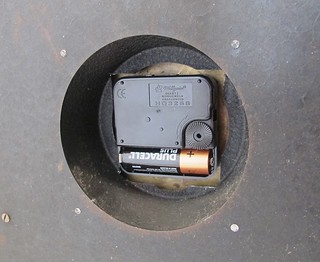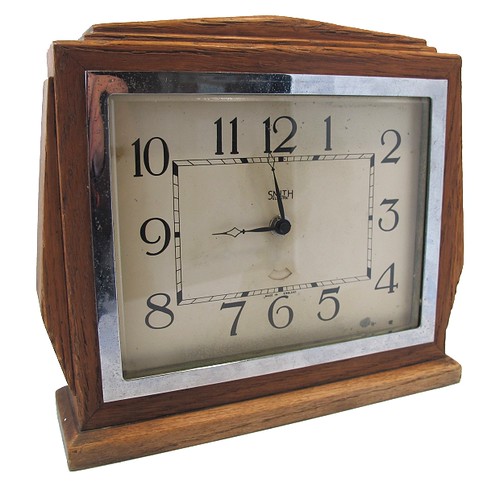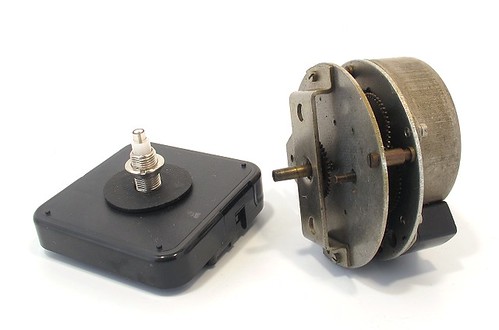I like clocks and have quite a collection. One of my favourites is this early Smith Electric mantelpiece number bought at a car boot sale or second hand shop many years ago. Maybe it's not really that special or valuable but its proportions are pleasing to the eye.
It used to run off the mains but a couple of years ago developed a fault that would see the motor stall. Not knowing why this was happening and with a little lubrication not helping matters, I decided that I'd better not leave it plugged in for fear that something would heat up and catch fire. This left me with an ornament rather than a timepiece.
Well, now I've finally fixed it. The first thing I had to do was replace the mechanism. To start with this requires the clock to be taken carefully to pieces.
Antiques experts may gasp in horror, but I've used a modern quartz mechanism powered by an AA battery (left) in place of the mains motor (right). If this were a terribly valuable clock Id never have considered this but it's not, so I did.
Sadly, the old hands didn't fit the new mechanism and when I tried to open out the spindle hole to fix this, the hour hand broke. Therefore a new paid were ordered from the Hobby's catalogue (www.hobby.co.uk) picking a set that would both fit and suited the look of the clock.
 After this, I just had to re-assemble the parts with the new works in place. The back plate needed a trim with some tin snips to accommodate the new parts and I can't cover them with the old plastic, possibly Bakelite, cover but as this is around the back, no one will see.
After this, I just had to re-assemble the parts with the new works in place. The back plate needed a trim with some tin snips to accommodate the new parts and I can't cover them with the old plastic, possibly Bakelite, cover but as this is around the back, no one will see.
So far the clock has kept excellent time. It looks nice and I'm confident it won't catch fire. All the parts are stored in my clock repair stash but I like to think I've saved a nice old thing from landfill.


No comments:
Post a Comment